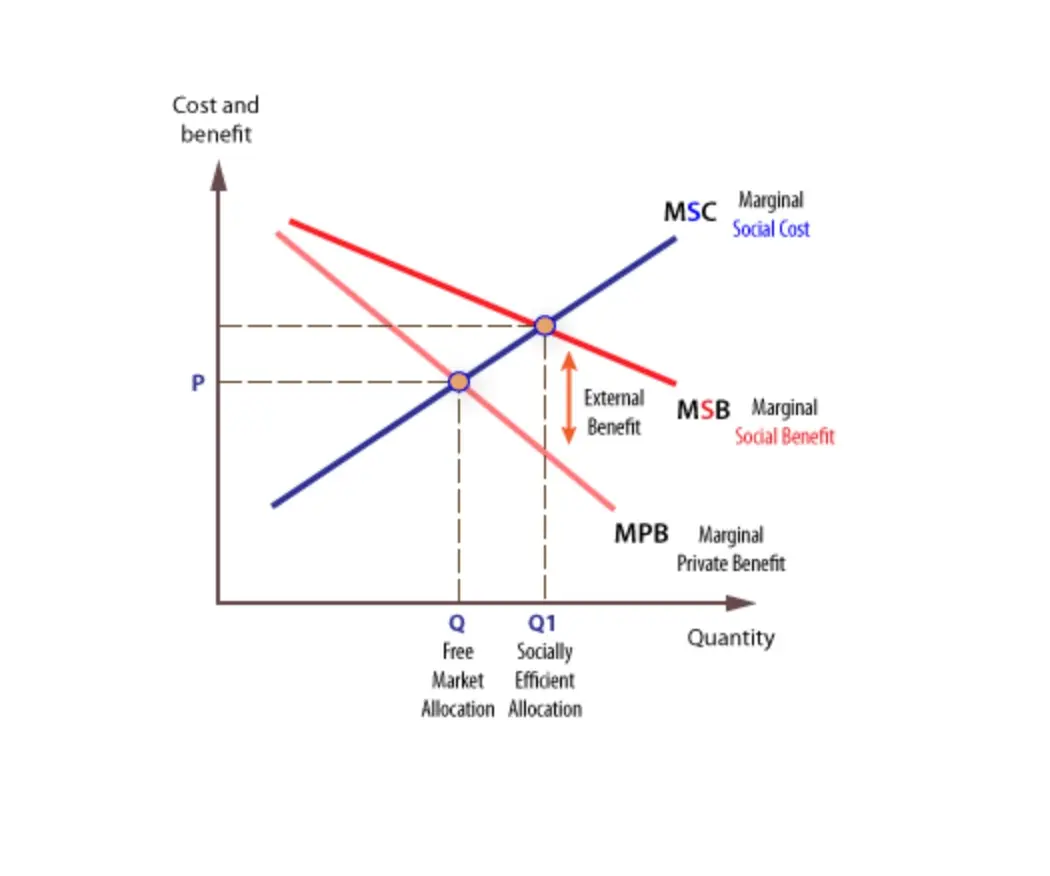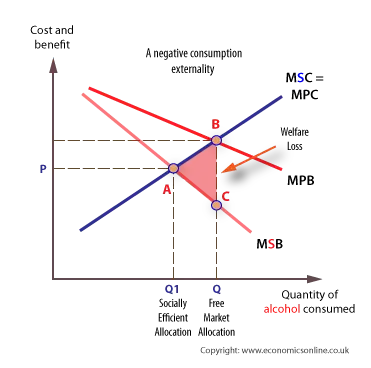AQA Specification focus:
‘How under-provision of merit goods and over-provision of demerit goods may also result from imperfect information.’
Imperfect information prevents individuals and firms from making fully rational decisions. This misallocation often causes under-provision of merit goods and over-provision of demerit goods, distorting resource allocation.
Imperfect Information and Economic Decision-Making
In economics, imperfect information refers to situations where buyers, sellers, or both do not have complete or accurate knowledge of a product’s characteristics, price, or long-term consequences. Markets rely on informed choices to allocate resources efficiently, but when information is flawed or incomplete, outcomes deviate from the socially optimal allocation.
Imperfect Information: A market condition in which consumers or producers lack full knowledge about the quality, price, or consequences of consumption or production.
Without adequate information, demand and supply reflect distorted preferences, leading to either over-consumption or under-consumption relative to the socially desirable level.

The diagram shows the divergence between MPB and MSB for merit goods, illustrating the welfare loss due to under-consumption in a free market. Source
Merit Goods and Imperfect Information
Merit goods are goods that provide significant private and external benefits but tend to be under-consumed if left to the free market. The primary reason is that individuals may not be aware of the long-term or wider social benefits of consumption.
Examples include education, healthcare, and vaccinations.
Consumers may underestimate the private benefits (e.g., better job prospects from education) or ignore positive externalities (e.g., healthier populations reducing disease spread).
Producers may also fail to provide enough of these goods if consumer demand is artificially low due to ignorance of benefits.
Merit Good: A good that tends to be under-consumed if left to the free market because individuals underestimate its private and external benefits.
This information failure means merit goods require encouragement through subsidies, advertising campaigns, or direct state provision.
Demerit Goods and Imperfect Information
In contrast, demerit goods are goods that generate private benefits but involve high personal and external costs, leading to over-consumption. Imperfect information contributes significantly to this problem.
Examples include cigarettes, alcohol, and unhealthy food.
Consumers may lack awareness of health risks or long-term costs (e.g., medical expenses, reduced life expectancy).
Advertising by producers may deliberately obscure or downplay harmful effects, further exacerbating the issue.
Demerit Good: A good that tends to be over-consumed if left to the free market because individuals underestimate or are unaware of its private and external costs.
In these cases, information failure leads to excessive resource allocation, crowding out more socially beneficial alternatives.

The diagram illustrates the divergence between MPB and MSB for demerit goods, highlighting the welfare loss due to over-consumption in a free market. Source
Misallocation of Resources
The misallocation occurs because the private optimum diverges from the social optimum. Consumers make decisions based on incomplete knowledge, meaning equilibrium consumption levels deviate from what is socially efficient.
Merit goods: Too few resources allocated → under-provision.
Demerit goods: Too many resources allocated → over-provision.
Diagrammatic Representation
In standard analysis:
For merit goods, the marginal social benefit (MSB) lies above the marginal private benefit (MPB) because consumers underestimate true benefits. Market equilibrium occurs at a lower output than socially optimal.
For demerit goods, the marginal social cost (MSC) lies above the marginal private cost (MPC) due to hidden costs. Market equilibrium results in higher output than socially desirable.
Causes of Imperfect Information
Several factors explain why imperfect information persists in markets:
Complexity of goods: Healthcare and education involve long-term benefits difficult to assess at the time of consumption.
Time lags: Harmful effects of demerit goods like smoking may appear decades later.
Biased information: Advertising campaigns may mislead consumers or exaggerate benefits.
Behavioural biases: Short-term gratification may cause individuals to ignore long-term consequences (myopia).
Each of these contributes to distorted choices and systematic misallocation of resources.
Government Responses to Information Failures
Governments intervene to correct misallocation caused by imperfect information. Key interventions include:
For Merit Goods
Subsidies to reduce price and encourage consumption.
Compulsory provision, e.g., free schooling and vaccinations.
Information campaigns to raise awareness of benefits.
For Demerit Goods
Indirect taxes to raise prices and reduce demand.
Regulation, such as age restrictions on alcohol and tobacco sales.
Advertising bans or mandatory health warnings.
These interventions aim to align private decisions more closely with the social optimum.
Evaluating Government Intervention
While intervention can address misallocation, it is not without drawbacks.
Effectiveness: Information campaigns may fail if consumers ignore or distrust them.
Equity concerns: Taxes on demerit goods can be regressive, disproportionately affecting lower-income groups.
Government failure: Policy may create distortions, e.g., black markets in response to high taxes.
Thus, while imperfect information justifies government action, the effectiveness depends on design, enforcement, and public response.
Key Takeaways
Imperfect information prevents markets from functioning efficiently.
It leads to under-provision of merit goods and over-provision of demerit goods.
Misallocation results from consumers not recognising true costs and benefits.
Governments intervene through subsidies, regulation, taxation, and information campaigns, though risks of government failure remain.
FAQ
Imperfect information occurs when neither buyers nor sellers have full knowledge about a good or service, leading to poor decision-making.
Asymmetric information is a more specific case where one party has better information than the other, such as a seller knowing more about a product’s quality than the buyer.
Both create misallocation, but asymmetric information often involves deliberate withholding of knowledge, whereas imperfect information may stem from complexity or ignorance.
Even when information is available, consumers may undervalue merit goods due to:
Behavioural biases, such as focusing on short-term costs instead of long-term benefits.
Time preference, where future benefits like better health feel less immediate than current sacrifices.
Low awareness, particularly in communities with poor access to educational campaigns or healthcare advice.
Thus, misallocation persists beyond simple lack of facts.
Misallocation caused by imperfect information often extends across generations.
Under-consumption of merit goods like education or vaccinations reduces opportunities for children and perpetuates cycles of poverty or ill-health.
Over-consumption of demerit goods like smoking can impose long-term healthcare costs and pass negative habits or health risks onto future generations.
Advertising can deliberately obscure the harmful effects of demerit goods.
Selective presentation: Emphasises enjoyment or social status while ignoring health risks.
Emotional appeal: Exploits psychological biases, such as glamourising alcohol or fast food.
Information overload: Bombards consumers with conflicting messages, making risks less clear.
This manipulation deepens imperfect information and drives over-consumption.
Yes, technology can improve access to accurate information.
Health apps can provide real-time warnings about diet or smoking risks.
Online education platforms can highlight the benefits of continued study.
Public health databases make long-term outcomes more transparent.
However, misinformation online can also worsen imperfect information, so credibility of sources is crucial.
Practice Questions
Define a demerit good and explain why imperfect information may lead to its over-consumption. (2 marks)
1 mark for a correct definition of a demerit good (e.g. a good that is over-consumed if left to the free market because consumers underestimate or are unaware of its costs).
1 mark for linking imperfect information to over-consumption (e.g. consumers lack knowledge of long-term health risks of smoking, so demand is higher than socially optimal).
Explain how imperfect information can result in the under-provision of merit goods and the over-provision of demerit goods. Use examples in your answer. (6 marks)
Up to 2 marks for explanation of under-provision of merit goods (e.g. consumers underestimate benefits of education/healthcare → demand lower than socially desirable).
Up to 2 marks for explanation of over-provision of demerit goods (e.g. consumers unaware of health risks of cigarettes/alcohol → demand higher than socially desirable).
1 mark for use of at least one accurate example of a merit good.
1 mark for use of at least one accurate example of a demerit good.
Maximum: 6 marks.

